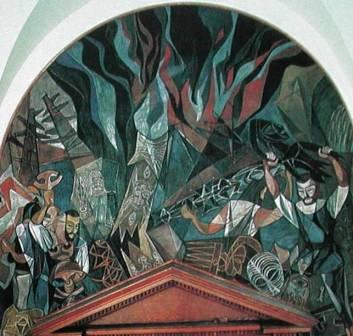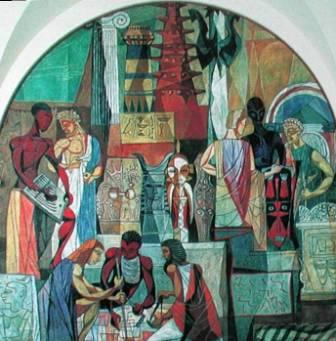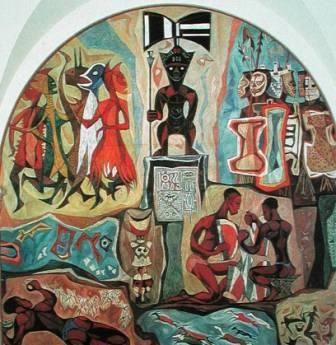 |
| HOME | GLOBAL | DISTRICTS | CLUBS | MISSING HISTORIES | PAUL HARRIS | PEACE |
| PRESIDENTS | CONVENTIONS | POST YOUR HISTORY | WOMEN | FOUNDATION | COMMENTS | PHILOSOPHY |
| SEARCH | SUBSCRIPTIONS | JOIN RGHF | EXPLORE RGHF | RGHF QUIZ | RGHF MISSION | |
|
|
|
|
|
When I received this email from the chairman of an e-Rotaract club about the nature of a Rotary eClub, my first thought was not what is it but what could it become. I see Rotary eClubs in the same way that artists from the Harlem Renaissance saw education in the South: the opening of vistas and the embracing of all cultures in the mix. Since it is global, it could be the history of the world mixed with the technology of today with the ideal and dreams of creation of Rotary Clubs. It could be the visionary, planning, procuring and recruiting arm of a proud, historic organization. It could be a new creation for service.
What is a Rotary eClub and How Does it Differ from a Land-based Rotary Club?
Recently, I was sent an email stating this: “Our e-Rotaract club uses a wiki and email-group to propose and plan service projects that we execute in the local area. We’ve recently accepted international members and we’re looking to expand our service program to perform projects that aren’t limited by geography.” At the end of the internet letter, some questions were posed: “How do you organize service projects? How do you select members? What are the requirements for membership? How do members perform Club service across such distances?” Behind all these statements and questions is one basic question: “What is a Rotary eClub and how does it differ from a land-based Rotary Club?”
To find answers for questions in business, there is one rule: Follow the money. Where does the institution spend its resources? Time is money. What are the priorities for that institution from this knowledge? If one looks at most of the budgets for governments in the world, the answer to that financial question is war and security. In America, it has been in that order since 9/11. More has been spent on the wars in the Middle East than on securing America’s borders. The questions raised by many Americans today center on those two elements of global life. Internationally, fewer resources are spent on peace than war. An exception to this rule is one of Rotary International’s priorities: the pursuit of peace and conflict resolution. Therefore, it probably should be a priority for Rotary eClubs since they are international in membership, outlook and network.
Peace, on an individual, cultural and global landscape, should dominate the programs of eClubs. This was not the major purpose of the original Rotary in Chicago (on the ground service and sit-down fellowship were the heart of that first Rotary) but it started to be a mission of Paul Harris late in his life. Because of the nature of eClub’s existence in virtual space, those programs should be centered upon the planning of peace programs on the ground, not the execution. This is true in business with “outsourcing” and “globalization” of what makes up a business in today’s world. The leaders of commerce must now know their multi-dimensional audience to give them service (i.e.: Dell, Microsoft, Coca Cola, McDonalds and the Guggenheim Museum). It is flexible leadership that is needed: If the audience knows nothing, tell them; knows a little, sell them; if they know as much as you, work with them; and if they know more than you, find them the resources and get out of their way. This concept has been around since the 1970s. We live today in a world where you can hire the level of expertise that is needed to get a job done (as long as the resources are there and can pay for it). Planning can be done in virtual space whereas service is done in a specific place and time. One criterion for having service though is a semblance of peace.
In America, many of us have the luxury of deciding where we wish to live by the level of security, education, services (medical and other), compatible friends, play, shelters of our choosing and transportation routes to our jobs. These communities are planned by others: adding nature to civilization to services. The eClub may be an essential part of a planning arm of this way of living for the globe. Rotary International, with its World Peace Scholarship graduates of a Rotary Peace Program in conflict resolution, is one of the leaders in this direction.
Let us look at several examples of planning situations: 1) “America’s” War in Iraq (globally it is many nations who have sacrificed for this effort, but here, politically, it has become “American’s” war), 2) Robert Wilson’s creation of a work of art, 3) a review of programs by the Rotary eClub of the Southwest, USA, and 4) some individual, new ventures of service: planning and execution.
The “American” war in Iraq was brilliantly planned from the sky, a parallax vision of the world from satellites. It was successful in its computerized bombing and the ultimate defeat of a historically, conventional army. The planning for an “on-the-ground”, “face-to-face,” “house-to-house” battling over a period of years was lacking. The idea seems to have been: If we cut off the head of the corrupt government, we win. The real battle was for the “hearts and minds” of a people who had been educated for years in a certain mindset. This takes a different allocation of funds, resources and tactics. This takes “peace thinking” (win-win), not “war thinking” (win-lose).
To see a successful artist in “hearts and minds” thinking, we must go to one of the most innovative creators in today’s world, Robert Wilson. He is a director (opera, plays, dance, visual projects, etc.), a planner (draws out every instance of a production on “story boards”), teacher (creating a workshop on Long Island, Watermill, for future artists and creators) and businessman (creating his own foundation to fund projects and oversee the business of business with a staff and board and advisors). Wilson does not do the work on the ground (he does not do the work by his own hand but hires that out, whether it is making a piece of sculpture, staging an opera or play, or assembling a fashion icon’s exhibition-or Wilson’s own work). He oversees the excellence for the final product. He realizes that you can find expertise that is needed in any field today as long as you have the ideas and can articulate them.
As a new member of the Rotary eClub of the Southwest, USA, with half the members from the Western part of the United States and the other half from international locations, I reviewed all the programs and forum comments for the eClub to find out where the minds and spirits of the club members resided. A land-based Rotary Club finds it essential for each member to ATTEND; a Rotary eClub member must PARTICIPATE.
The programs for land-based clubs are centered on what is done on the ground (the final action, near or far); while the programs for Rotary eClub, in my opinion, should be about “planning for the future” and then finding the resources: human labor, finances, networking and oversight to get the job done. If a weekly program is centered on someone overcoming some illness, the eClub program should concentrate on the virtual struggle to overcome the mind blocks that stopped the individual from achieving their recovery and triumph, not upon the final victory on the ground. Credit is less important to eClubs. It is getting the total job done. Both planning and execution are important. It is a matter of priorities for the type of organization that one joins. One works in virtual space with ideas that become action while the other takes ideas and emphasizes the outcomes on the ground.
To let you see how this way of thinking has influenced my membership in a Rotary eClub, I arrived at two decisions from questions that I had to ask myself: “What are my skills as a museum director, writer, visual artist and educator (who also had to deal with financial problems all through my career)? How can I use these skills for the major problem in the 21st century, the journey toward peace on three levels: personal, cultural and global?” My answers to those two questions are in two projects right now: 1) I am helping to write a $3.5 million dollar grant for 13 water projects in El Salvador (over five years), with others (an engineer from Oregon, a writer and businessman from Colorado, some engineers from NASA, the Peace Corp and some local groups in El Salvador). I will not go to work on the ground. That will be done by Engineers Without Borders, Peace Corp volunteers and local townspeople. 2) I was enlisted into Rotary Global History (with a membership that circles the world) as a Peace Historian. In the two months since joining, I have created two major essays and edited about 100 more that discuss the ways to search and find PEACE. The next job is promoting and soliciting more essays on peace.
Therefore, who do you recruit into a Rotary eClub? Anyone who is a leader with a skill is the answer (as it always has been for Rotary). But you recruit individuals who are looking to join Service Above Self with Service Without Borders. The five-word job description for the CEO at Exxon, for years now, has been: “He plans for the future!” For any organization today, you need to recruit: visionaries (those who see out of the box), feelers (people who can relate to others in the community), doers (those who can get things done on the ground) and researchers (those who can give the past and present of any situation). Rotary eClubs are somewhat different. Rotary eClubs may lean heavier upon visionaries than land based clubs. Programs can come from those four categories of individual members. Also Rotary eClubs should work from verbs, not naming things (nouns).
Therefore here are some ideas: Peace is the number one priority for the 21st century. On-the-ground execution can be hired out if the planning and ideas are there first. Service Above Self is important when it is wedded to Service Without Borders in the Rotary eClubs. In any field that Rotary recruits, it should be the “brightest and best”. Follow the brains and the money.
Paul Harris said: “Remember that great missions are serious undertakings. Do not expect to perform great missions in a day.”
Calum Thomson, President of Rotary Global History, added: “The greatest mission of Rotary International lies within its Fourth Object of Rotary: World Understanding, Goodwill and Peace.”
A Chinese proverb says: “It is possible to move a mountain by carrying away small stones.” |
| RGHF Historian Joseph L. Kagle, Jr., 4 September 2006 |


